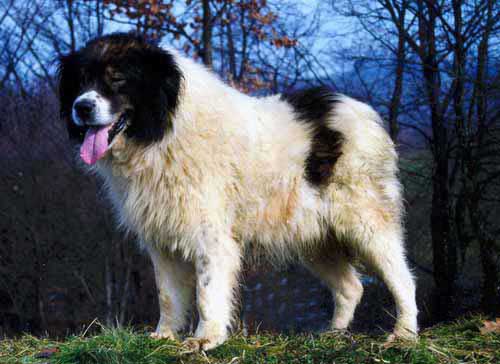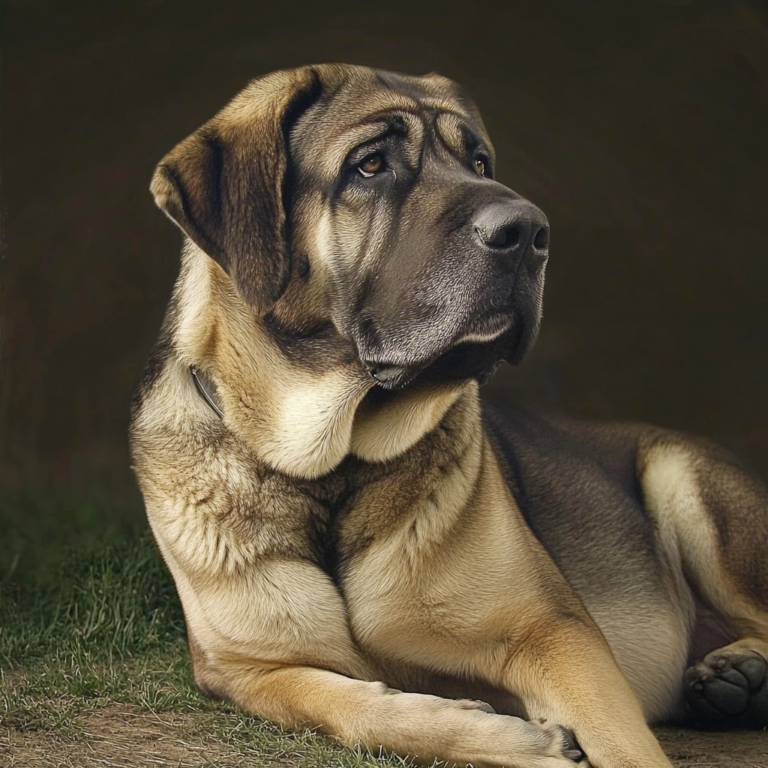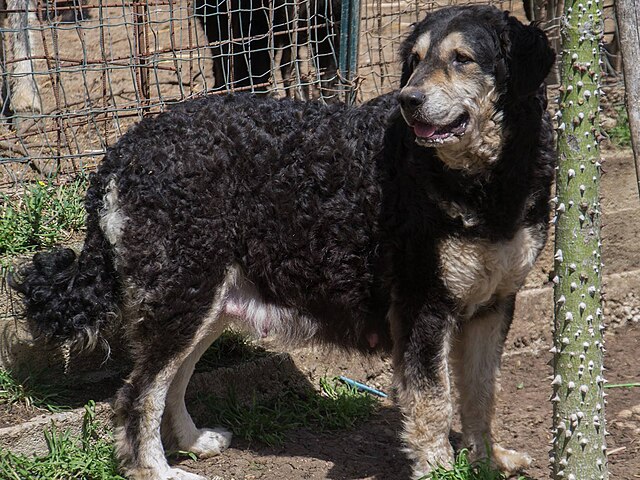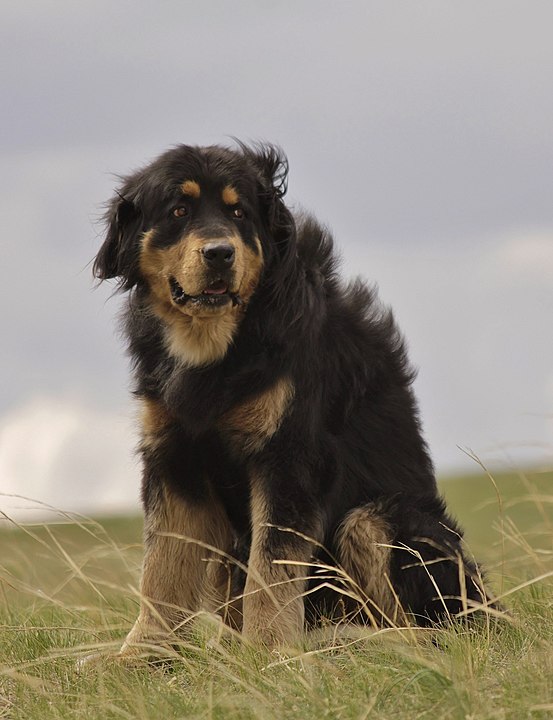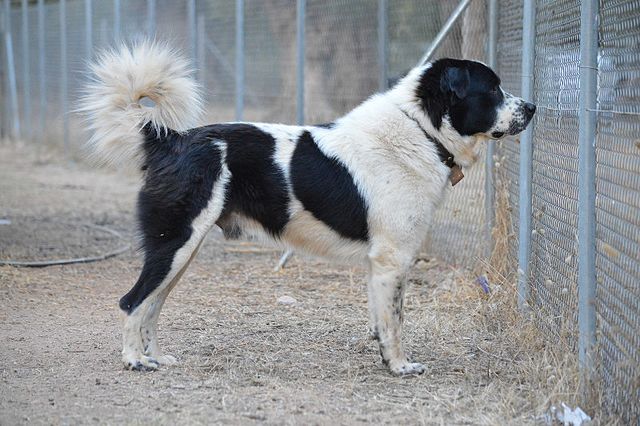The Tornjak has a fearless nature, a clever mind and a pleasant disposition. He is generally a calm dog when in the home – not one to bounce around foolishly all day. His steady activity level matches that of his generally stable attitude. He is loyal and affectionate with his owners and those whom he loves, including children. However if problems arise and a stranger (human or animal) threatens his home and/or property he won’t hesitate to defend it. Originally bred to guard livestock, he takes his job as a guardian very seriously which means it also takes him a while to warm up to strangers.
Tornjaks are obedient when trained, and training is a necessity because of their large size and powerful frame. Intelligent, they enjoy working with their owners and having a job to do. This breed often takes to obedience training quickly and happily, and many Tornjaks boast a great memory. Some can become willful or even pushy with owners that don’t enforce limits, so make sure to stay fair… but firm when needed.
Tornjaks are incredibly healthy dogs for their size, living 12-14 years on average. They developed in harsh climates and conditions which meant that only the fittest survived. Today they are easier keepers than other breeds of dog and tend to thrive easily. They can live outdoors in even cold and snowy weather thanks to their thick coats, and don’t tend to require as much food as one might otherwise assume for such a large dog.
The Tornjak is either indifferent to strange dogs (if meeting in a neutral territory) or potentially territorial and defensive (if they come onto his property). He isn’t known for being randomly dog-aggressive without reason, however, as long as he was properly raised and socialized. When raised with other dogs in the same household, he is often very social and friendly with his housemates, and doesn’t tend to get into fights or quarrels.
Tornjaks require only minimal exercise, particularly when they are still growing. At all ages they prefer off-leash running and play rather than leashed exercise but should always learn how to walk on a leash for the sake of manners, safety and laws. Although they are a low-energy breed, they don’t tend to thrive in apartment settings as they do best with lots of outdoor time where they can stretch their legs in a cool climate.
The medium-length, yet thick coat of the Tornjak needs to be brushed weekly (at minimum) to keep him looking and feeling his best. The coat can be prone to mats and tangles if not kept up with regularly. Furthermore during shedding seasons the Tornjak will require even more brushing – up to once per day! Doing so will speed the process along and keep the house cleaner as well. Giving the dog a bath when he’s shedding will also serve to loosen the hair and help with upkeep. Depending upon the desires of the owner, he only needs to be bathed a few times a year but can be given baths more frequently if desired. He doesn’t normally have a strong doggy odor. One more note about cleanliness – the breed can be prone to drooling.
Tornjaks tend to develop very deep bonds with their owners, so much so that they can be difficult to re-home if the situation calls for it. They seek to be near those they love at all times, often moving from room to room in order to stay with “their people”. Although there are some that are kept as outside-only dogs, they were often raised this way from puppyhood. Those who are raised primarily indoors for several years will have a very hard time transitioning to outside-only life later on. Unless the dog is being used for the purpose of guarding flocks of animals, it is discouraged to keep them as outdoor-only pets.
